-
Featured News
Marianne Faithfull 1946-2025
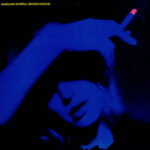 By Harvey Kubernik
Singer, songwriter, actress and author Marianne Faithfull passed away on January 30, 2025.
In 2000 I discussed Faithfull with her first record producer Andrew Loog Oldham, the 1
By Harvey Kubernik
Singer, songwriter, actress and author Marianne Faithfull passed away on January 30, 2025.
In 2000 I discussed Faithfull with her first record producer Andrew Loog Oldham, the 1 -
Featured Articles
The Beatles: Their Hollywood and Los Angeles Connection
 By Harvey Kubernik
JUST RELEASED are two new installments of the Beatles’ recorded history, revised editions of two compilation albums often seen as the definitive introduction to their work.
Or
By Harvey Kubernik
JUST RELEASED are two new installments of the Beatles’ recorded history, revised editions of two compilation albums often seen as the definitive introduction to their work.
Or -
Letters to PHIL MAY
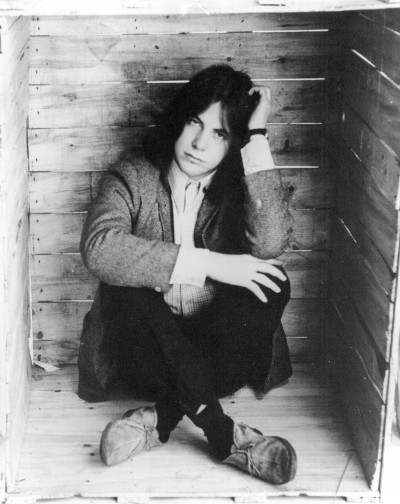
As you probably already know, Phil May is currently in the hospital after suffering breathing difficulties. He has been diagnosed with COPD, a serious disease affecting the lungs. Phil can beat this, but he needs your help and encouragement. He needs to give up drinking and especially smoking urgently and immediately. Those closest to him believe the best chance he has of doing this is to turn his lifestyle around, and immerse himself again in art, music and writing.
How can you help? Write a personal letter to Phil today. Give him your encouragement. It’s important that he knows that what he does artistically has value and connects with you. Tell him how much his music has meant to you. Explain why you are a fan of the Pretty Things. Write about why a particular Pretty Things song, album or live show has meaning for you. Share your own story of kicking drink, drugs or smoking or of overcoming a potentially deadly illness or disease. Let him know that what he does matters. We feel if Phil returns home to a flood of letters like this, he’ll be inspired to make the changes he needs to make,
What to do: Write your letter today, and mail it to the address below.
Phil May
c/o Ugly Things
PO Box 3021
La Mesa, CA 91944
USA
All letters will be forwarded unopened to Phil’s home in London. We need LETTERS. Emails or Facebook comments won’t get the job done. Phil is not a computer person; he won’t ever see them. Only a letter has the personal touch that will get our message through. Write today, do not delay. This is your chance to make a difference and help save Phil.
Sky’s Limits: The Seeds Stumble Into Psychedelia
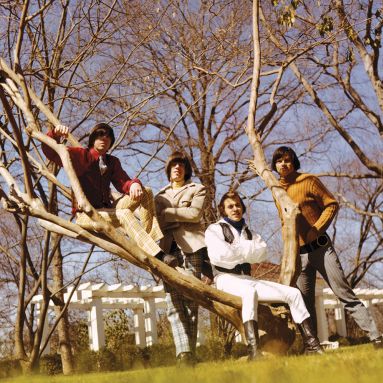
By Doug Sheppard
To capitalize on their hit single and to keep up with their contemporaries, the Seeds entered the sessions for their third album with aspirations of a more sophisticated sound. It was a great plan, but two things stood in the way: their own limitations and the overconfidence of leader/vocalist Sky Saxon.
Saxon’s inflated sense of self-importance only complicated the band’s limits, but 1967’s resulting Future album came off more as a mixed bag than an embarrassment. Between an overdubbed tuba on “Two Fingers Pointing on You” and “March of the Flower Children” (with Sky’s inane spoken-word intro) and weak material like “Painted Doll” (crappy ballad) and “Where Is the Entrance Way to Play” (forced profundity), Future has its share of awkward moments. The overdubbed harp may be added to that list, but not on “Flower Lady and Her Assistant” — a darker textured number where the objective doesn’t seem as unrealistic — and the obligatory long track “Fallin’ ,” where an “Evil Hoodoo” vibe portends a bad trip. The resurrected B-side “Out of the Question” and “Pushin’ Too Hard” soundalike “A Thousand Shadows” are the best of the lot — probably because they’re the only two that recall the Seeds’ original sound.
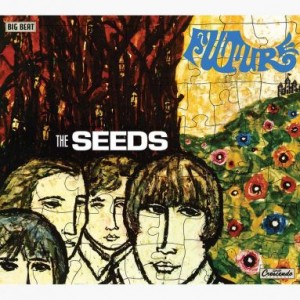
Ironically, three of the best tracks from the session — “Chocolate River,” “Sad and Alone” and “The Wind Blows Your Hair” — were left off the album, but appear (plus alternate versions) here. “Rides Too Long” — the original version of “A Thousand Shadows” under a different title — is another highlight of this expanded edition, as are early versions of “Gypsy Plays His Drums” and “Satisfy You,” not to mention less adorned versions (the mono “Travel With Your Mind” is the best mix) of a few album tracks. On paper, the full-length version of “900 Million People Daily All Making Love” has the potential to be another — but 10 minutes of it is a tad too much, and some of these songs (see previous paragraph) will never sound good, no matter what the mix.
The Radiators From Space Story, Part 3: Troubled Pilgrims
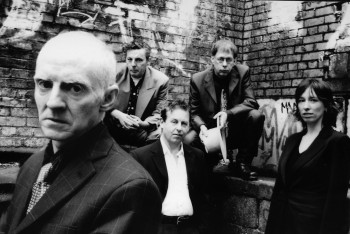
By Brian Neavyn
The arrival of the Radiators From Space on the Dublin scene as punk emerged was followed in early 1977 by their super-charged debut single “Television Screen.” Their move to London that autumn without lead singer Steve Rapid coincided with the release of their red hot album TV Tube Heart. On this evidence the band were very much a contributor to the new punk rock sound. This early period and the band’s interaction with the London punk scene is covered in detail in UT#35. Linking up with producer Tony Visconti as the year ended, opened up possibilities for songwriters Philip Chevron and Pete Holidai. They grasped the opportunity to pursue a musical path that their earlier pre-punk music influences determined. In early 1978, the Radiators (re-named) launched their radical new sound. The powerful and catchy glam-pop single “Million Dollar Hero” very nearly broke into the charts and was the appetizer for their unique Ghostown album, which was recorded in summer 1978.
However the punk scene was changing and developing so rapidly month by month that all acts associated with the early ‘76/’77 scene faced an uncertain reception. For the Radiators, much of their punk fanbase had peeled away by the time Ghostown was released over a year later. The delayed release did not help their cause and the band broke up in early 1981. Despite two project-focused but brief activities in the late 1980s the Radiators from Space were no more. UT#36 carries the story of the Ghostown album. The album’s literary references were woven with criticism of the state and in particular the church. This story also covers the release in 1989 of the single “Under Clery’s Clock” where Phil Chevron, in revealing his homosexuality, wrote of the dating experience of a young gay man.
Throughout the ‘90s their musical legacy attracted an ever growing international interest. The Radiators From Space reformed in late 2003 to play a Joe Strummer tribute concert. Guitarists Phil Chevron and Pete Holidai were joined for the show by original singer Steve Rapid and a new rhythm section of Cait O’Riordan on bass and Gareth Averill (Steve’s son) on drums.